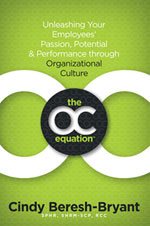Did you sign a non-complete or confidentiality agreement with your employer when you were hired? If so, you may want to dig it out your new hire package and review its content, especially if you’ve since left the company and want to use an idea, concept or product you developed while employed with them.
Case in point, Mattel and MGA Bratz are embroiled in a fierce legal battle worth at least $100 million, although reports indicate that Mattel will ask the courts for $1.1 Billion in damages.
Mattel alledges that , Carter Bryant, a doll fashion-designer, developed the concept for the Bratz dolls while working for them. Mr. Bryant maintains that he conceived the idea and drew the initial sketches while living with his parents in 1998 before beginning work for Mattel. When he left Mattel he took the Bratz concept to MGA and MGA developed and launched the Bratz dolls for MGA Entertainment. Mattel sued MGA for copyright infringement and theft of trade secrets. The court awarded Mattel $100 million, finding that Bryant had indeed developed the concept while employed by Mattel. That decision was later reversed by an appeals court, thus sending the case back for retrial. So, employees (and companies) beware, confidentiality agreements are binding contracts that provide the employer with specific rights to your work if conceived while in their employ.
These agreements are commonly included in the mountain of new hire paperwork you fill out on your first day of employment and in your excitement of starting a new job; many employees don’t pay close enough attention to what they are signing or the long term consequences contained in those agreements.
Below is some sample wording often used in confidentiality agreements. Take a close look to discover how limiting it can be for an inventor.
In consideration of my employment, the continuation of my employment and/or other consideration I have received or will receive in connection with my employment by ABC Company or any of its affiliates including subsidiaries or partnerships (collectively “ABC Company“) I hereby agree as follows:
To promptly disclose to ABC company any and all discoveries, inventions, improvements and expressions of ideas that I may make or conceive, either solely or jointly with others, while in the employ of ABC Company relating to any product, service, manufacturing process, equipment or business of ABC Company or to any need or development of ABC Company. Unless otherwise agreed in writing by ABC Company, any expression of idea or original work of authorship fixed in any tangible form and prepared by me, either solely or jointly with others, during the period and within the scope of my employment with ABC Company shall be deemed a “work made for hire” under the copyright laws and shall be owned by ABC Company. I understand that any assignment or release of such work can be made only by ABC Company. I will do everything necessary to enable ABC Company to protect its rights in such work. All such discoveries, inventions, improvements and expressions of ideas shall be the property of ABC Company. However, this agreement shall not apply to a discovery, invention, improvement or expression of idea for which no equipment, supplies, facility or trade secret information of ABC Company was used and which was developed entirely on my own time and (1) which does not relate (a) to the business of ABC Company or (b) to ABC Company’s actual or demonstrably anticipated research or development, or (2) which does not result from any work performed by me for ABC Company.
Tips for protecting your unique ideas and concepts:
1. If you’re an inventor or have a side business or just like to invent, disclose that fact during the interview process or immediately upon hire.
2. If you’re working on an idea, concept or project, at the time of hire, carefully outline the details of your work and negotiate its exclusion from the confidentiality agreement. Remember, you have the greatest negotiating power BEFORE you begin work.
3. Keep original concepts and ideas for personal inventions and projects at home and do not work on them while on company property or company time.
4. Do not use company resources for your personal projects.
5. Get the help of a good copyright attorney – the cost may well be worth the expense.
When $100 million is involved, everyone wants to lay claim to an idea, concept or product. Do yourself and your organization a favor, take proactive steps now to differentiate your ownership rights from that of your organization.

